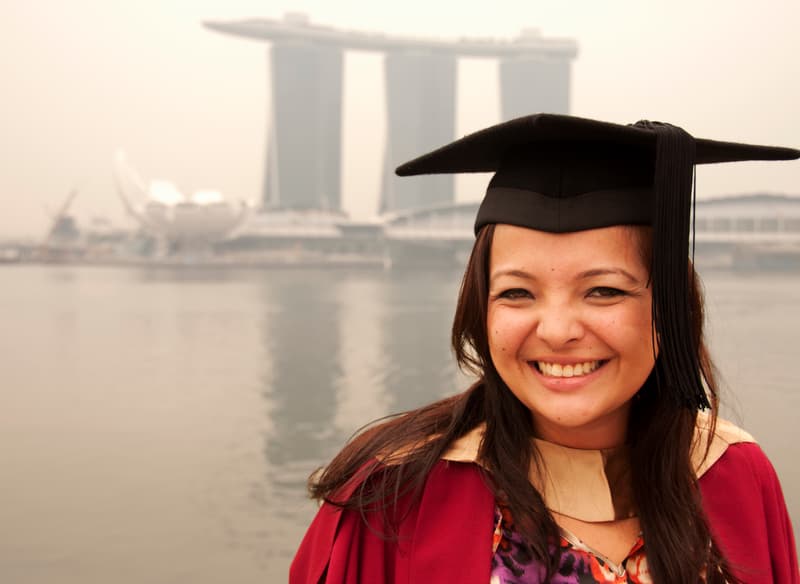International Expert - Mapping Landscape for SME financings in Lebanon
Remote | Beirut
- Organization: UNIDO - United Nations Industrial Development Organization
- Location: Remote | Beirut
- Grade: Volunteer - International Specialist - Internationally recruited Volunteer
-
Occupational Groups:
- Agriculture and Forestry
- Sustainable trade and development
- Sustainable Business Development
- Closing Date: 2024-02-06
Requisition ID: 3279
Grade: ISA-Specialist
Country: Home Based
Duty Station: Home Based
Category: International Consultant
Type of Job Posting: Internal/External
Employment Type: Non-staff WAE
Contract Duration: 30 working days over a period (incl. mission to Lebanon)
Application Deadline: 06-Feb-2024, 11:59 PM (CEST)
Vacancy Announcement
TEMPORARY APPOINTMENT OF PROJECT PERSONNEL
Female candidates are encouraged to apply.
ORGANIZATIONAL CONTEXT
The United Nations Industrial Development Organization (UNIDO) is the specialized agency of the United Nations that promotes industrial development for poverty reduction, inclusive globalization and environmental sustainability. The mission of UNIDO, as described in the Lima Declaration adopted at the fifteenth session of the UNIDO General Conference in 2013 as well as the Abu Dhabi Declaration adopted at the eighteenth session of UNIDO General Conference in 2019, is to promote and accelerate inclusive and sustainable industrial development (ISID) in Member States. The relevance of ISID as an integrated approach to all three pillars of sustainable development is recognized by the 2030 Agenda for Sustainable Development and the related Sustainable Development Goals (SDGs), which will frame United Nations and country efforts towards sustainable development. UNIDO’s mandate is fully recognized in SDG-9, which calls to “Build resilient infrastructure, promote inclusive and sustainable industrialization and foster innovation”. The relevance of ISID, however, applies in greater or lesser extent to all SDGs. Accordingly, the Organization’s programmatic focus is structured in four strategic priorities: Creating shared prosperity; Advancing economic competitiveness; Safeguarding the environment; and Strengthening knowledge and institutions.
Each of these programmatic fields of activity contains a number of individual programmes, which are implemented in a holistic manner to achieve effective outcomes and impacts through UNIDO’s four enabling functions: (i) technical cooperation; (ii) analytical and research functions and policy advisory services; (iii) normative functions and standards and quality-related activities; and (iv) convening and partnerships for knowledge transfer, networking and industrial cooperation. Such core functions are carried out in Divisions/Offices in its Headquarters, Regional Offices and Hubs and Country Offices.
The Directorate of Technical Cooperation and Sustainable Industrial Development (TCS), headed by a Managing Director, oversees the Organization's development of capacities for industrial development as well as industrial policy advice, statistics and research activities and the Organization's normative contribution to Member States and global development community in achieving the SDGs. The Directorate also ensures the application of strategies and interventions for sustainable industrial development related to Environment, Energy, SMEs, Competitiveness and Job creation, as well as Digitalization and Artificial Intelligence. Through coordination in-house and with Member States and industry stakeholders, it ensures that the services provided in these areas contribute toward effective and appropriate technical, business and policy solutions and are focused on results and on realizing any potential for scaling up and positioning UNIDO as a leading platform for industrial development in developing countries and global fora.
The Directorate houses the technical Divisions of Capacity Development and Industrial Policy Advice (TCS/CAP); Circular Economy and Environmental Protection (TCS/CEP); Decarbonization and Sustainable Energy (TCS/DSE); SMEs, Competitiveness and Job Creation (TCS/SME); and Digital Transformation and AI Strategies (TCS/DAS). The Directorate also ensures close coordination and collaboration among the Divisions as well as with relevant entities in the Directorate of Global Partnerships and External Relations (GLO) and the Directorate of SDG Innovation and Economic Transformation (IET).
The Division of Circular Economy and Environmental Protection (TCS/CEP) contributes to greener and more circular industries and products by minimizing both resource use along value chains and the emission of pollutants to the environment.
The Division promotes just transitions to circular economies, reduced release of pollutants into the environment and other green industrial and economic approaches to help Member States to grow economically while simultaneously addressing the three planetary crises of climate change, biodiversity loss and pollution. It does so by supporting resource efficiency increases in the manufacturing and use of products along value chains and during the life cycle of the product; by reducing or eliminating the emission of non-fuel-related greenhouse gas emissions; and by assisting in achieving the objectives of and compliance with multilateral environmental agreements. In doing so, its activities further improve competitiveness, as well as the development of and access to markets, particularly for SMEs. This contributes to climate-neutral, resilient, pollution-free industrial development, supporting co-existence that is in harmony with nature.
This position is located under the Circular Economy and Resource Efficiency Unit (TCS/CEP/CER) which is responsible for supporting capacity development to scale up and mainstream the production of sustainable products and adoption of circular and resource-efficient cleaner patterns of consumption and production along value chains, circular economy policies, programmes, and practices, including circular business models that improve the profitability of industries while creating social and environmental benefits. In addition, it promotes nature-based solutions and ecosystem-based approaches for inclusive and sustainable industrial development (ISID) that support the co-existence of industries in harmony with nature. In addition, it facilitates the design of sustainable products made with fewer materials, with greater durability, reliability, reparability, reusability and recyclability, and supports the deployment of new business models that improve environmental performance.
PROJECT CONTEXT
The project entitled “Private sector transition to a green and circular economy in Lebanon” (210028) will contribute to a reform, recovery and reconstruction Framework (3RF) for Lebanon. The framework prepared by EU, WB and UN in consultation with government, donor and civil society, following the Beirut explosion in August 2020, aims building back better of Lebanese economy with promoting growth and job creation. The project funded by EU is executed by UNIDO. Through the project, EU and UNIDO collaborate to strengthen private sector and support “Startups, Micro and Small Enterprises, including women-led enterprises, develop sustainable, socially and gender responsive green and circular economy business models”.
UNIDO within the projects MED TESTII and III, contributed significantly to capacity building and identification of barriers, challenges and road map for future growth of industrial sector. Agricultural production in Lebanon is very much limited and perceiving adversity because of Climate Change (CC). Some agro-produces like citrus, grapes, olives, cereals, various other fruits and vegetables are very important resources and its efficient use and further value addition via industrial production is extremely important. Hence Food and Beverage (F&B) is priority sector for value addition and imports minimization. Energy import and power shortage has further constrained the industrial growth in the country.
With the overall objective of transitioning to green and circular economy, the project embraces Transfer of Environmentally Sound Technology (TEST); resource efficient production and sustainable consumption following Circular Economy (CE) approach; facilitating the mobilization of investments and use of radially available renewable energy resources for the growth of Lebanese F&B industrial sector to generate more jobs and attain greening economy.
A wide range of stakeholders namely from public sectors (Ministries, governmental authorities etc.), international financing as well as development organizations, private sector organizations and academia are involved to ensure effective deliverable and ownership at a national level for the transition to a green and circular economy in Lebanon.
The project’s PMU is established in Lebanon, and it is made of an Industrial Development Expert (IDE), a national circular economy coordinator, a project administrative assistant, all based in Lebanon, plus the UNIDO Technical and Monitoring Project Coordinator based in UNIDO’s HQ. The whole team is directly supervised by the UNIDO project manager.
MAIN DUTIES
The execution of technical assistance to participating companies of the 2Circular project will result in the development of a pipeline of investment-ready projects in the resource efficiency and circular economy spaces. Most of identified projects will typically require capital investment to be implemented.
Mainstream financial services have been halted due to the current political and macroeconomic instability, the financial crisis that unfolded after demonstrations in October 2019 and the default on national foreign currency debt in 2020. Private sector access to finance instruments in Lebanon is currently very limited to alternative services comprising various equity and debt instruments offered by venture capital and impact funds, philanthropic initiatives, business incubators and accelerators, NGOs and FIs.
The 2Circular project supports the mapping exercise of national and international development finance schemes currently active or potentially interested in promptly investing in green and circular economy initiatives in Lebanon. The study shall provide detailed information about scope and target of available financial opportunities, commercial terms and conditions for accessing available products, compliance requirements, detailed information about application, evaluation and due-diligence processes; and other pieces of information essential for delivering effective technical assistance to participating companies and facilitating their matching with potential financers.
The assessment also explores the level of national financing institutions awareness about the link between ‘sustainable practices and profitability’ and, if not active in the sector, their potential interest in developing credit lines dedicated to industrial resource efficiency and green and circular business models.
Overseen by the Project Manager in Vienna, supervised by the Industrial Development Expert leading the project in Lebanon and in close collaboration with other members of the PMU, the incumbent will carry out the following tasks:
- Desk review of project documents, relevant literature, reports and databases related to SME finance in Lebanon. Propose approach, methodology and work plan to conduct a mapping study of national and international development finance schemes currently active in Lebanon.
- Design a clear framework for mapping including various parameters like financial institution details, product segment and typologies, investment ranges, target audiences, compliance requirements, and application processes. The framework must also include the appraisal of the awareness level that the analyzed financial schemes/institutions have regarding green project financing and their potential interest in offering financial support dedicated to industrial resource efficiency and green and circular business models.
- Identify key stakeholders and financial institutions, government and donor programmes and private initiatives providing investment and financial support to SMEs in Lebanon.
- Engage with the Project Team to support the development of the presentation for showcasing RECP projects that have already been identified and implemented with UNIDO support in the country or in the region, along with their financial characteristics. This effort aims to raise awareness among Financial Institutions and prepare for upcoming interviews.
- Conduct the mapping assessment and collect data and information on existing financial services available for SMEs, as well as those in the pipeline for establishment. As part of this task, the expert is required to conduct a field visit in Lebanon to collect data over a period of 12 days (DSA for the mission is provided in addition to consultant fees) Additionally, the expert will need to employ online methods for further data collection and analysis.
- Elaborate a report with the mapping results and analysis, including 1) Fiches per each financial source identified, 2) Clear recommendations on the most suitable financial mechanisms to liaise with and strategic steps to do so; 3) Recommendations on awareness-raising content and efforts to increase main national financing mechanisms’ awareness about investment opportunities in green and circular economy opportunities.
- Elaborate a PowerPoint presentation on results and recommendations targeting the project’s main stakeholders.
MINIMUM ORGANIZATIONAL REQUIREMENTS
Education: Advanced degree in Finance, Banking, Economics, Business Administration, or other relevant discipline is required.
Technical and Functional Experience:
- A minimum 5 years’ professional experience in the field of development finance, banking, microfinance, with a specific focus on SME financing developed with relevant financial entities is required.
- Ability to conduct market research and feasibility studies is required.
- Strong financial and analytical skills and proficiency in assessing financial products and services targeting SMEs is required.
- Experience in emerging markets or developing countries in roles involving financial inclusion and SME development is highly desirable.
- Experience in managing SME finance projects, program development, in emerging markets and developing counties is highly desirable.
Languages: Fluency in written and spoken English is required. Fluency and/or working knowledge of another official UN language is desirable.
REQUIRED COMPETENCIES
Core values:
WE LIVE AND ACT WITH INTEGRITY: work honestly, openly and impartially.
WE SHOW PROFESSIONALISM: work hard and competently in a committed and responsible manner.
WE RESPECT DIVERSITY: work together effectively, respectfully and inclusively, regardless of our differences in culture and perspective.
Key competencies:
WE FOCUS ON PEOPLE: cooperate to fully reach our potential –and this is true for our colleagues as well as our clients. Emotional intelligence and receptiveness are vital parts of our UNIDO identity.
WE FOCUS ON RESULTS AND RESPONSIBILITIES: focus on planning, organizing and managing our work effectively and efficiently. We are responsible and accountable for achieving our results and meeting our performance standards. This accountability does not end with our colleagues and supervisors, but we also owe it to those we serve and who have trusted us to contribute to a better, safer and healthier world.
WE COMMUNICATE AND EARN TRUST: communicate effectively with one another and build an environment of trust where we can all excel in our work.
WE THINK OUTSIDE THE BOX AND INNOVATE: To stay relevant, we continuously improve, support innovation, share our knowledge and skills, and learn from one another.
This appointment is limited to the specified project(s) only and does not carry any expectation of renewal.
Employees of UNIDO are expected at all times to uphold the highest standards of integrity, professionalism and respect for diversity, both at work and outside. Only persons who fully and unconditionally commit to these values should consider applying for jobs at UNIDO.
All applications must be submitted online through the Online Recruitment System. Correspondence will be undertaken only with candidates who are being considered at an advanced phase of the selection process. Selected candidate(s) may be required to disclose to the Director General the nature and scope of financial and other personal interests and assets in respect of themselves, their spouses and dependents, under the procedures established by the Director General.
Visit the UNIDO website for details on how to apply: www.unido.org
NOTE: The Director General retains the discretion to make an appointment to this post at a lower level.
Notice to applicants:
UNIDO does not charge any application, processing, training, interviewing, testing or other fee in connection with the application or recruitment process. If you have received a solicitation for the payment of a fee, please disregard it. Vacant positions within UNIDO are advertised on the official UNIDO website. Should you have any questions concerning persons or companies claiming to be recruiting on behalf of UNIDO and requesting payment of a fee, please contact: recruitment@unido.org








